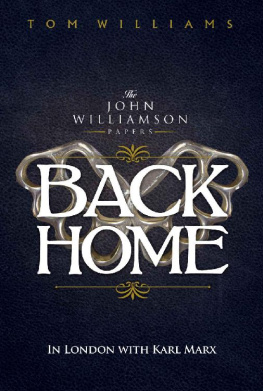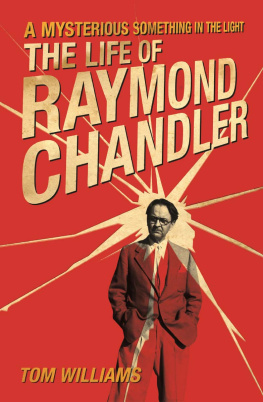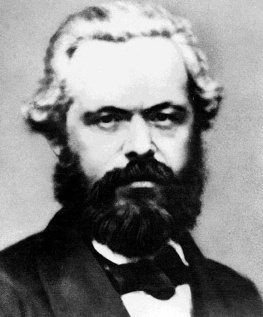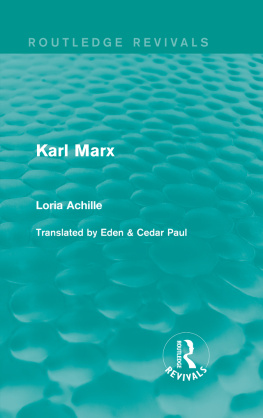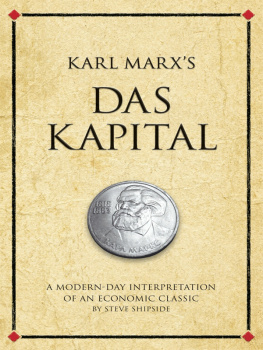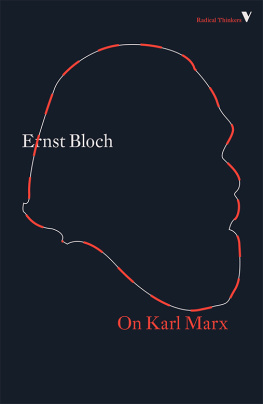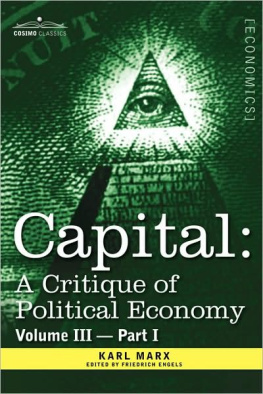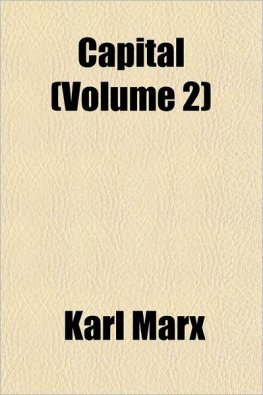Tom Williams - Back Home: In London with Karl Marx (The Williamson Papers)
Here you can read online Tom Williams - Back Home: In London with Karl Marx (The Williamson Papers) full text of the book (entire story) in english for free. Download pdf and epub, get meaning, cover and reviews about this ebook. year: 2021, publisher: Big Red, genre: Science fiction. Description of the work, (preface) as well as reviews are available. Best literature library LitArk.com created for fans of good reading and offers a wide selection of genres:
Romance novel
Science fiction
Adventure
Detective
Science
History
Home and family
Prose
Art
Politics
Computer
Non-fiction
Religion
Business
Children
Humor
Choose a favorite category and find really read worthwhile books. Enjoy immersion in the world of imagination, feel the emotions of the characters or learn something new for yourself, make an fascinating discovery.
- Book:Back Home: In London with Karl Marx (The Williamson Papers)
- Author:
- Publisher:Big Red
- Genre:
- Year:2021
- Rating:3 / 5
- Favourites:Add to favourites
- Your mark:
- 60
- 1
- 2
- 3
- 4
- 5
Back Home: In London with Karl Marx (The Williamson Papers): summary, description and annotation
We offer to read an annotation, description, summary or preface (depends on what the author of the book "Back Home: In London with Karl Marx (The Williamson Papers)" wrote himself). If you haven't found the necessary information about the book — write in the comments, we will try to find it.
Back Home: In London with Karl Marx (The Williamson Papers) — read online for free the complete book (whole text) full work
Below is the text of the book, divided by pages. System saving the place of the last page read, allows you to conveniently read the book "Back Home: In London with Karl Marx (The Williamson Papers)" online for free, without having to search again every time where you left off. Put a bookmark, and you can go to the page where you finished reading at any time.
Font size:
Interval:
Bookmark:
Back Home
Tom Williams
Published by Big Red 2021
First published by Accent Press 2016
Copyright Tom Williams 2016
The right of Tom Williams to be identified as the author of this work has been asserted by the author in accordance with the Copyright, Designs and Patents Act 1988.
Names and characters are the product of the authors imagination and any resemblance to actual persons, living or dead, except in the cases of historical figures, is entirely coincidental.
All rights reserved. No part of this book may be reproduced, stored in a retrieval system, or transmitted in any form or by any means, electronic, electrostatic, magnetic tape, mechanical, photocopying, recording or otherwise, without the written permission of the publishers.
CONTENTS
Preface
This is the third account of John Williamsons life. It was sent to me by the same anonymous donor as the second. I had not expected a third episode, for the Williamson who had experienced the adventures recounted in Cawnpore was a broken man and it seemed unlikely that his life would contain anything more of note. In fact, it seems that he was to have one final adventure, this time back in the land of his birth.
I don't know what was in Williamson's mind when he wrote this. The story of his time in Borneo (published as The White Rajah ) was written when he was wrestling with a problem that he thought writing could help him solve. Cawnpore appears to have been an early draft of something he had perhaps intended one day to publish. This manuscript, though, seems to have been written simply as a record for himself, almost like an extended diary entry. Perhaps that's why much of it appears to be an attempt to justify behaviour that he clearly has doubts about and why, here and there, he seems to have been not entirely as truthful as in his other accounts. (Theres a note at the end which discusses this.)
Unlike Cawnpore , this manuscript was not divided into chapters, but I have added these breaks in for the convenience of the modern reader. I have also corrected some spelling errors. Williamson was, by the time he wrote this, a man who expressed himself well on paper and, had he intended it for publication, I am sure he would have made these corrections himself. Otherwise I have left well alone.
Williamson does seem to be looking back on his life and there are frequent references to his time in Borneo and India. For those who havent read The White Rajah or Cawnpore , its probably helpful to have a brief introduction to the man and his adventures.
John Williamson was born to a family of labourers on a farm in Devon. His family died when he was a child and as soon as he was old enough he left the farm to become a seaman. As a young man he was on the crew of Sir James Brookes vessel, the Royalist . He travelled to Borneo with Brooke and became his interpreter. Sir James, like Williamson, was gay and eventually a relationship developed between them. When Brooke became the ruler of Sarawak, a province in the north-west of Borneo, Williamson lived with him, ostensibly as his assistant. Brooke taught Williamson to read and write, and eventually Williamson played a significant role in the administration of the country. He was deeply in love with Brooke and shared his lovers desire to do his best for the inhabitants. However, when Brooke called in the British Navy to annihilate the pirates who preyed on his people, Williamson could not live with the consequences. Appalled by the scale of the killing, he left Brooke and travelled to India.
Arriving in India, Williamson took a job with the East India Company, as an assistant to the Collector in Cawnpore. He enjoyed the work and came to love the place and its people, even forming a relationship with one of the local Indian princelings. When the Indian Mutiny started, he found himself torn between his conflicting loyalties. As he tried to be true to both his Indian and European friends, he ended up witnessing massacres of the Europeans by the Indians and the appalling retaliation that the British inflicted after the war was over. Although he survived Cawnpore and was seen as a hero by the East India Company, he was a broken man and returned to England.
He had written accounts of his adventures in Borneo and in India and this instalment of the Williamson Papers follows on immediately from the end of Cawnpore , with him having just put ashore in Plymouth
Tom Williams
Chapter One
I have got in the way of writing about the chapters that have shaped my life, and now I take up my pen again to tell the story of what I expect to be my last adventure.
In the summer of 1859, I found myself once more in England. I had put ashore in Plymouth, where I had first set out on a seafarers life more than a quarter of a century earlier. My course, it seemed to me, had run full circle, and it felt only natural that I should walk northwards now, seeking out Mr Slatterys farm and the world of my childhood.
My time in Borneo had left me well provided for, and the East India Company was generous in its pension to a survivor of Cawnpore, but, though there was plenty of money to draw on in the bank, I had arrived ashore with little more than a change of clothes and a bag of gold for my journey. The sovereigns, it is true, gave a healthy weight to my purse and I could easily have purchased some fashionable clothes and a horse on which to travel to the village of my birth. But it was June, the sun was shining, and I welcomed the opportunity to allow myself to believe, for a few days, that I was still the same honest labourer I had been when I was last in Devon. So it was that I set out to walk. I had one pair of stout shoes and a change of clothes that I carried in a pack upon my back. I changed a couple of the sovereigns into copper and silver that would draw less attention and sewed the rest into the lining of my coat. I was, to any I met on the road, just another sailor home from the sea. Even my tan, so dark that I had been able to pass as an Indian while living in the subcontinent, was beginning to fade.
I had dreamt of England in my years away. It was not, it is true, exactly as I had remembered or, rather, fondly imagined it to be. After the vast landscapes of India and the huge, impenetrable jungles of Borneo, England appeared cramped, the high roads mere lanes, the lanes barely tracks across the miniature landscape. It seemed, too, almost empty of people. My memory of Plymouth was of a bustling port but now, after Calcutta, I thought it a backwater in which a few sailors and merchants were no substitute for the teeming humanity and animal excitement of that city. At the same time, those few individuals whom I saw looked as if, in the rapidity of their locomotion and the enthusiasm of their activity, they were attempting to make up in sheer force of will what they lacked in numbers. Everything in England moved so fast. Three times in my first hours ashore I was nearly ridden down, once by a coach and twice by simple farm carts, which thundered along the cobbled streets as if a minutes delay might be fatal to their drivers plans.
Outside the town the pace of life appeared more leisurely, but even here the labourers in the fields worked with a steady rhythm that was alien to the Indians leisurely approach to life. No beggars greeted me with their demands for alms. No Brahmins sat with their empty food bowls waiting for my donation. Indeed, when I entered a village, I would often see the constable keep a wary eye on me in case I might be an indigent who, if still in the parish as darkness fell, would need to be fed and housed overnight before I could be shuffled on to be another villages responsibility.
When I had last been in England, King William was on the throne. Sailor Bill had seemed a cheery fellow. The war with France had ended less than twenty years before and King Williams reign always had something of a celebratory feel to it. Now, though, our monarch was Queen Victoria, and England presided over the greatest Empire the world had ever seen. Even in the Devon countryside, life moved with a purpose. Every man toiling in the fields, every woman hanging out her laundry all played their part in the business of Empire, bringing, though the labourer might not have the leisure to appreciate it, unparalleled prosperity to the nation. Here was the very mainspring of that machine that sent its armies and its missionaries across the globe, to bring civilisation and Christianity to the peoples of the world, though, in my experience, they might be ignorant of their want of either.
Next pageFont size:
Interval:
Bookmark:
Similar books «Back Home: In London with Karl Marx (The Williamson Papers)»
Look at similar books to Back Home: In London with Karl Marx (The Williamson Papers). We have selected literature similar in name and meaning in the hope of providing readers with more options to find new, interesting, not yet read works.
Discussion, reviews of the book Back Home: In London with Karl Marx (The Williamson Papers) and just readers' own opinions. Leave your comments, write what you think about the work, its meaning or the main characters. Specify what exactly you liked and what you didn't like, and why you think so.

